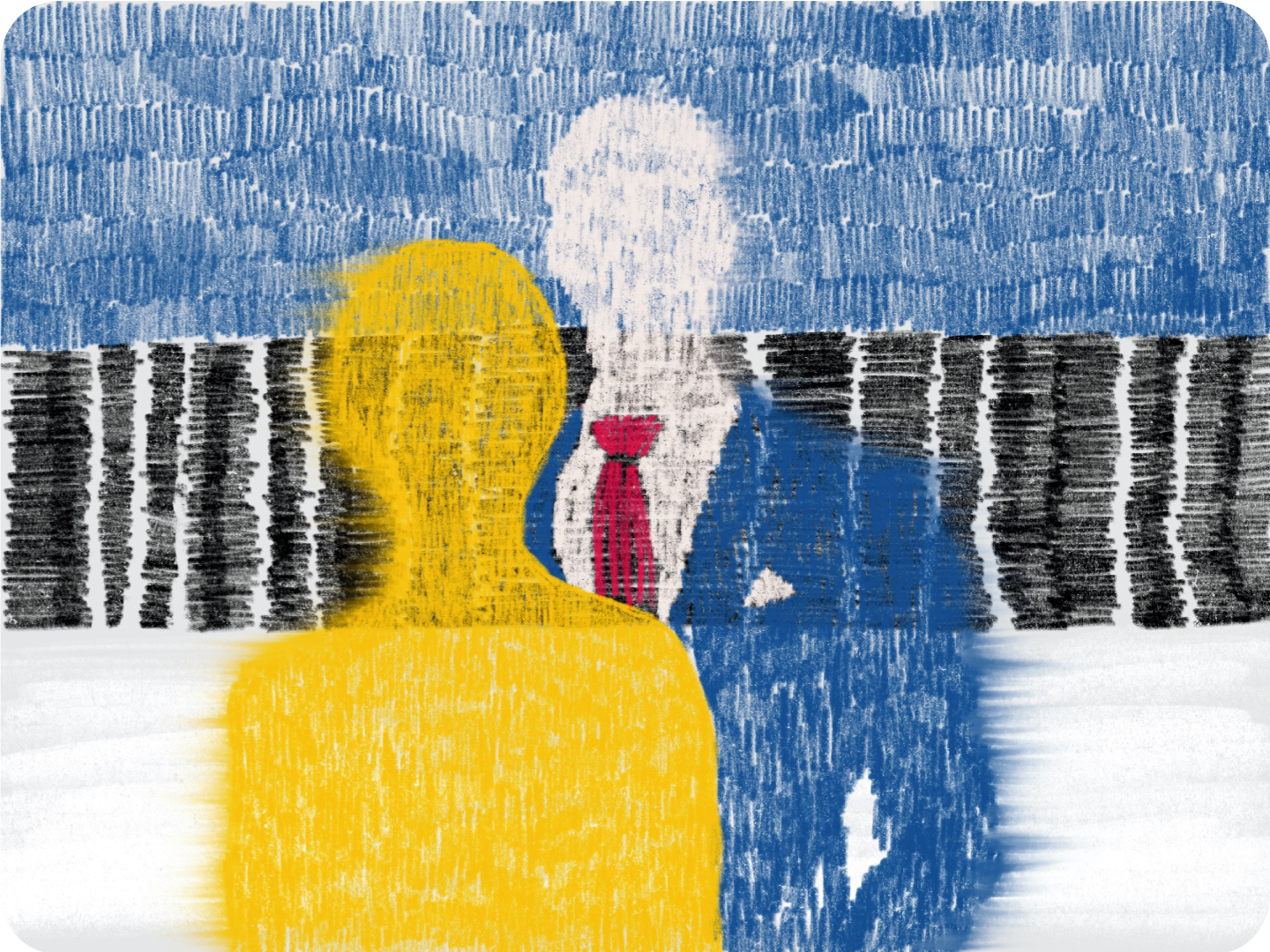Author of the illustration Ljubov Terukova
The Estonian parliament is currently debating the issue of revoking the right to vote in municipal elections from Russian and Belarusian citizens. What specific threat to national security is posed by the voting rights of third-country nationals remains unclear—even to the authors of the Estonian Constitution, who were at its foundation. Or has the right to vote truly become a privilege in our time, with the state continuing to serve democracy by protecting public interests?
It feels strange to me that Estonia has decided to tackle this issue now—when one crisis is followed by another, taxes are rising, the economy is steadily declining, and tensions in society are running higher than ever. Don’t we have more urgent problems to address? One thing is clear: the war in Ukraine has reshaped our relationship with our neighbor, rubbing salt into a wound that had barely begun to heal. Things won’t go back to the way they were—at least not anytime soon.
It feels like we’ve already started adapting to this new reality. Public and media discussions about the importance of educational reform have quietly died down, and the removal of monuments has left barely a trace. Laws are no longer being translated into Russian, and the lack of Russian on new government websites is now seen as the norm. Russian-language newspaper offices in the capital are closing, and the driving exam is now conducted exclusively in the state language. Even in signage and menus, Russian is gradually disappearing—and not always under the watchful eye of Keelemalev (a group of activists advocating for the dominance of Estonian in public spaces). Let’s be honest: our daily lives won’t change if shopping malls suddenly stop broadcasting advertisements in Russian. People didn’t stop going to McDonald’s when the Russian version of the menu was removed. By now, it’s been quietly accepted: learning Estonian is a must. But is that really the key to solving all our problems?
Historically, Estonia has been home to both Russian-speaking citizens and non-citizens. According to Statistics Estonia data for 2024, around 80,000 Russian and Belarusian citizens currently live in the country. Russian speakers—or Russian Estonians—have long been part of our society: “our people,” “our compatriots.” So, what has changed now? Why have the people we’ve lived alongside for so long suddenly become “them” in the eyes of the state? And what about the older generation—those who came to Estonia 50, even 80 years ago? They lived here peacefully, supported our democracy, paid their taxes diligently, and led quiet, harmonious lives. Are they no longer part of “us” either?
Citizenship is not a true indicator. An Estonian citizen can violate all moral principles and, supposedly out of ignorance, continue supporting the economy of an aggressor state. At the same time, a Russian citizen who has openly condemned the actions of their ethnic homeland might have previously moved to Estonia and is now working to strengthen its democracy, shedding light on the horrors unfolding in Ukraine every day. The first is the husband of a high-ranking Estonian political figure; the second is the editor-in-chief of Rus Delfi. So, does citizenship really determine one’s political views?
I believe the decision to revoke a right enshrined in the Constitution was made on an emotional basis. It requires not only a review of the relevant amendments but also a thorough assessment of its consequences. It’s important to ask ourselves: are we truly protecting national interests this way, or are we risking further division within society? In difficult times, emotions often overpower rationality, but now more than ever, we need balanced and fair decisions that strengthen trust in the state rather than undermine it.
______________
This material is part of the PERSPECTIVES 2 project – a new label for independent, constructive, and multiperspective journalism. The project is funded by the European Union. The opinions and positions expressed are those of the author(s) and do not necessarily reflect the views or positions of the European Union or the European Education and Culture Executive Agency (EACEA). The European Union and EACEA assume no responsibility for them. Learn more about PERSPECTIVES.
This material is part of the PERSPECTIVES 2 project – a new label for independent, constructive, and multiperspective journalism. The project is funded by the European Union. The opinions and positions expressed are those of the author(s) and do not necessarily reflect the views or positions of the European Union or the European Education and Culture Executive Agency (EACEA). The European Union and EACEA assume no responsibility for them. Learn more about PERSPECTIVES.

